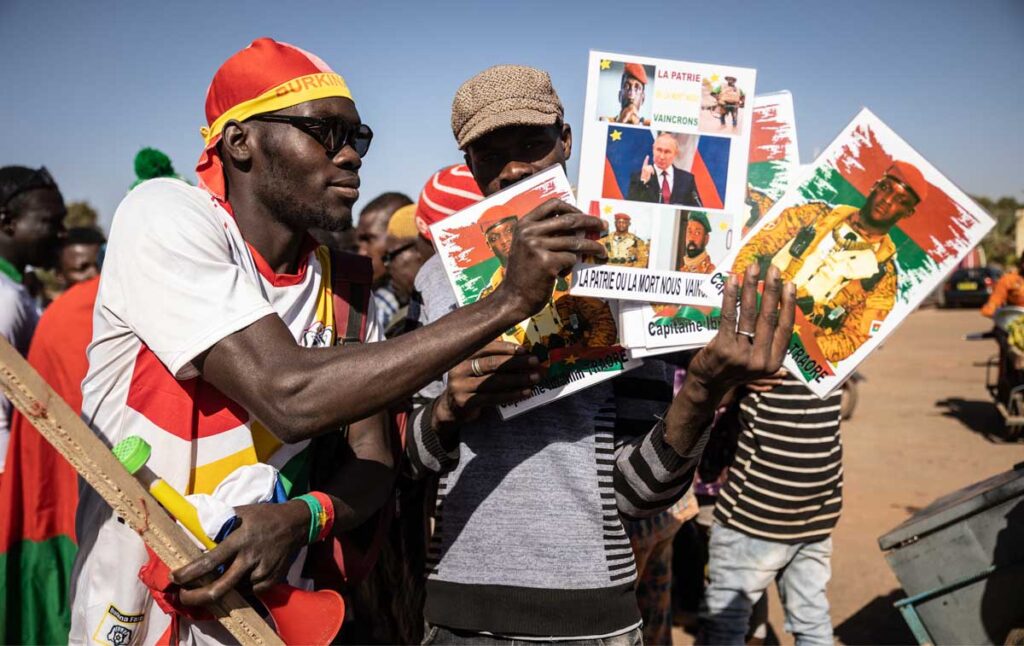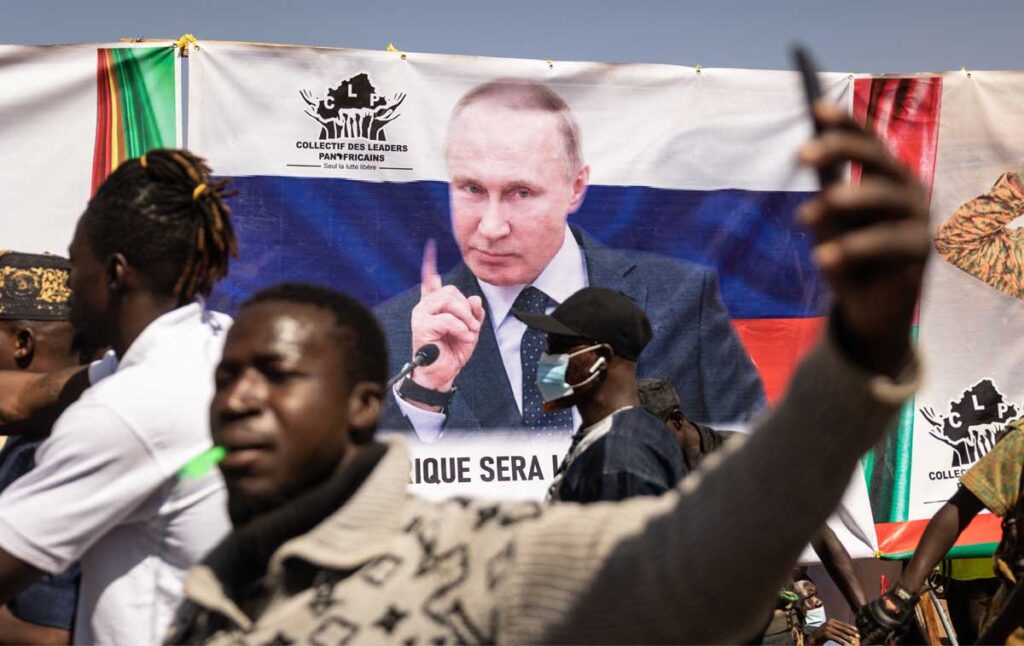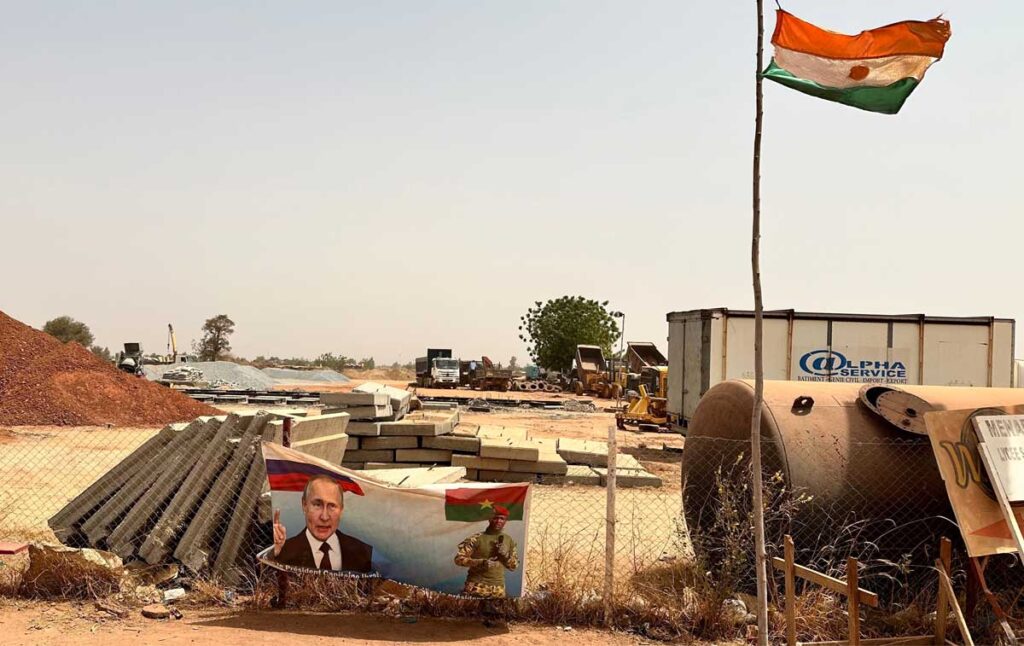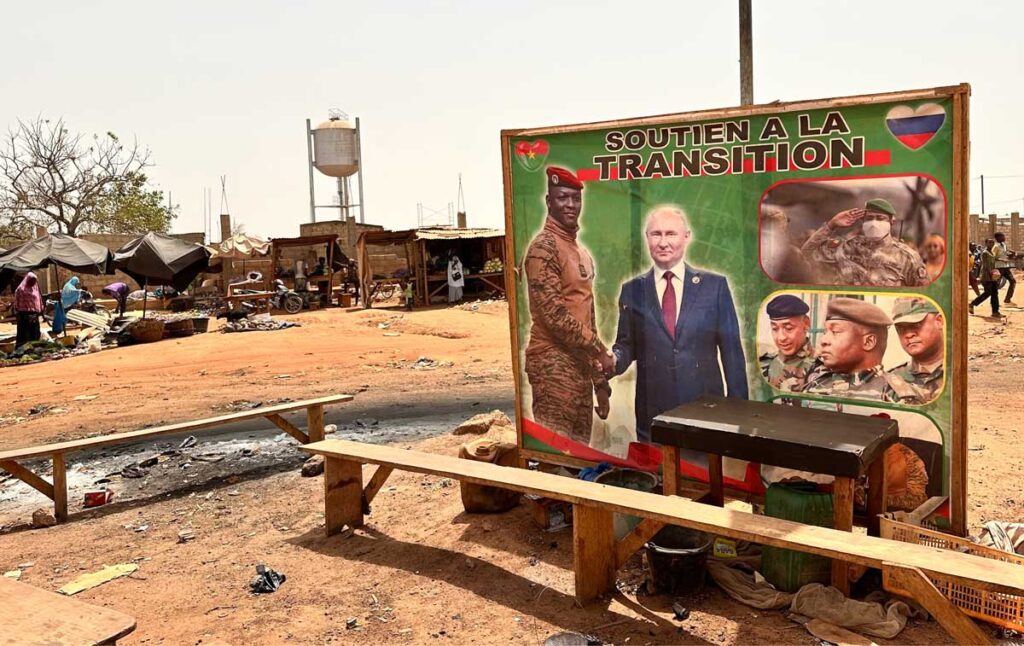Russia’s use of disinformation campaigns to sway narratives is increasingly evident
War has been marked by the use of propaganda and disinformation for centuries. Individuals, states, and non-state groups have used them to collectively rally people towards their own narratives, ideologies or causes. Although these practices are not novel, the advent of the internet, social media, and artificial intelligence have advanced the speed and scope of their influence. Identifying what’s real and what is not has become increasingly difficult and some platforms, like X, are unable to adequately deal with accounts which spread disinformation.
The manipulation of information, narratives or discourse has always been a key feature of war and conflict. Information is power and can play a key part in advancing foreign policy positions and objectives for states. Fake news and online propaganda have increasingly played a role in inciting violence and dissent, while some governments have manipulated content or disrupted internet access during periods of political contestation.
For the first time, the epicentre of terrorist fatalities is no longer in the Middle East but the Sahel. In 2023, Burkina Faso accounted for 25% of all terrorism-related fatalities worldwide. The Sahel region accounted for 50% of deaths in the same period, and this is evident in the continued escalation of violence and instability where these groups operate. The tri-border region of Liptako-Gourma, where the borders of Burkina Faso, Mali, and Niger meet, has been the focal point of violence and instability for more than a decade. The complex and diverse set of jihadi groups, along with other regional Tuareg and local armed groups, has created a dangerous environment with which international and regional military operations have failed to grapple.

Photo: Olympia De Maismont / AFP
The unfortunate outcomes of the French Operation Barkhane (August 2014-November 2022) and the United Nations mission in Mali (MINUSMA April 2013 – December 2023) and their exit opened an opportunity for a change in security partnerships. Russia’s growing interest in improving its diplomatic relations with African states has coincided with growing anti-western sentiment on the continent due to increasing dissatisfaction with their lack of agency and representation in international politics.
Russia has moved to position itself as an ally to African states who want to resist influence from traditional western economic and political partners. Military cooperation is at the heart of Russia’s current strategy to develop stronger relations with African states, and the Sahel is where it’s been met with open arms by military juntas and parts of the civilian population.
Russia’s use of disinformation campaigns to sway narratives and frame historical or current events to promote a specific interpretation or solution has become increasingly evident.
Putin’s foreign policy objectives form part of the framing that happens in his country’s disinformation campaigns. Russia aims to broaden its soft power and influence in Africa through different means (not foreign aid, for example). Thus, its framing aims to undermine citizen sentiment toward western influence and favour Russian cooperation instead.
The digital age has provided a convenient and self-serving platform for Russian-sponsored and endorsed political narratives. Research published by the Rand Corporation in 2020 concluded that during the 2016 US presidential election, Russia sought to manipulate public opinion on divisive issues and exacerbate cracks in the political process. The Russian Internet Research Agency (IRA) was accused of involvement in these social media campaigns; it is commonly known as the harbourer of “internet trolls” who impersonate American users on social media accounts to spread propaganda. Subsequent reports, including one published by five Australian universities in July 2021, indicate that the IRA had direct authority from Putin and funding from former Wagner boss, the late Yevgeny Prigozhin.

Russian state-sponsored international broadcasters like RT and Sputnik have been key sources of repeated scepticism around the intentions and objectives of UN and western forces in Africa. The emphasis on national sovereignty and non-interference in the affairs of states is key to Russia’s media narrative on Africa. In the Sahel, Russia has used Russosphère, a network of social media groups that promote Kremlin-sponsored messaging in French. Memes are generally the content medium of choice, and they help trigger reactions to anti-French and anti-West sentiments. The accounts attempt to latch onto real-time politics and help to drive existing dissatisfaction or discontent. Russia and authoritarian regimes alike also use disinformation to pre-emptively offset narratives that challenge their legitimacy or actions.
Wagner has been central in driving anti-French content and has helped run social media propaganda as part of their security service offering, according to an African Defence Forum February 2023 report. The report included interviews with a Belgian Russosphère orchestrator, Luc Michel, who revealed that the network had helped to legitimise Russia’s war in Ukraine and saw its influence in the Sahel as the security solution for the region’s fight against Jihadi groups.
Striking evidence of the outcome of Russia’s disinformation campaigns in Mali, Burkina Faso and Niger was made public through a wave of protests that took place in each country after the military takeovers that occurred there. Some analysts have suggested that the disinformation helped drive anti-French and UN sentiment, leading to their withdrawal. However, the withdrawal of troops was unlikely to have been linked to those disinformation campaigns; rather, it resulted from an accumulation of factors, including fractures between the military approaches of France and the US, as well as Russia’s liberal arms deals.
Moreover, both Russia and the US were involved in the military training of Malian officials who were later involved in orchestrating the subsequent coups. However, while the escalation of insecurity in the Sahel cannot be blamed solely on disinformation campaigns, in the long term the integrity of media freedom and access to critical and reliable information about the security situation in these countries is at risk of deteriorating with Russia’s presence.

Media freedom across the Sahel has deteriorated since the domino of military coups between 2019 and 2023. Journalists in Mali and Guinea have faced increasing intimidation and censorship by authorities since the military takeovers took place. Media outlets have also faced pressure to broadcast patriotic and nationalistic messages that favour those in authority, strikingly like the messaging delivered by Russia’s RT and Sputnik.
In Burkina Faso, where the media has historically been more robust, the Damiba-led junta that led the first coup, cracked down on the country’s media regulator by changing its leadership and allowing social media accounts to be investigated and censored. Captain Ibrahim Traoré, the second coup leader and current authority figure in Burkina Faso, followed suit by restricting media coverage by French-run broadcasters and continuing to censor the activities of local and international journalists in the country.
The use of disinformation in today’s ever-more complex wars and conflicts across the world and on the African continent presents a new challenge to states and regional bodies that aim to bring peace and stability. These trends add a new dimension to the difficulties in maintaining truth and justice during and after contexts of armed violence and humanitarian suffering. Many civil society and corporate organisations are working to counter disinformation through holistic approaches, which include harnessing tech-savvy youth who are fostering skills to debunk false news online.
Media and information literacy education in West African universities has been shown to help students accurately identify false information online before sharing or distributing it. These strategies are crucial because we cannot rely solely on social media platforms to regulate the content space. Developing and strengthening agency remains the solution to countering disinformation and the conflicts in the Sahel because overreliance on external solutions has and will only cause more instability and human suffering.



